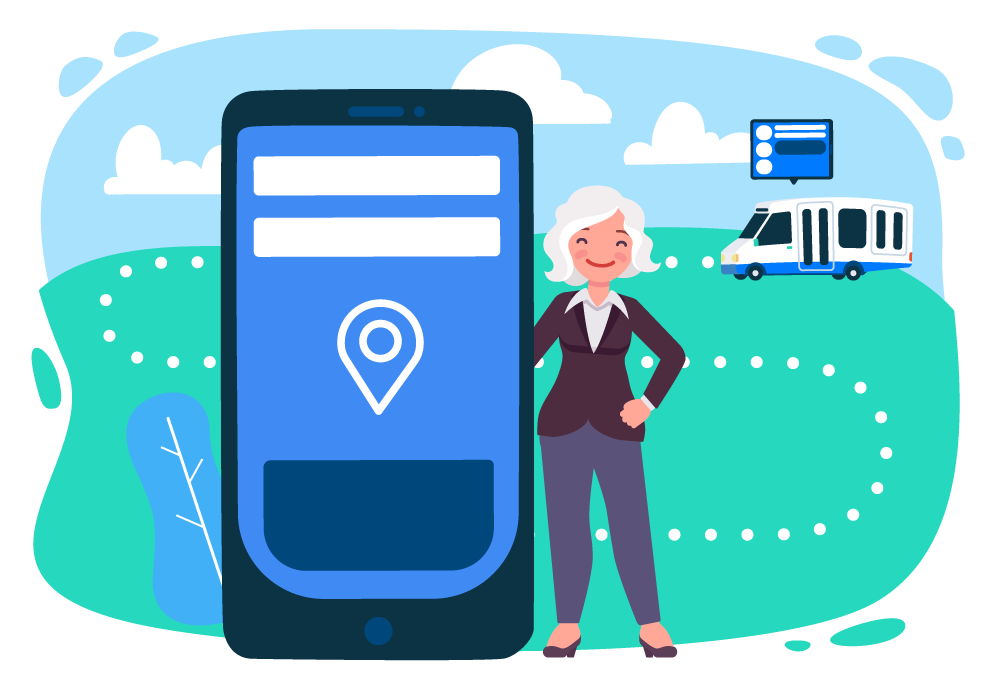
What Is Mobility on Demand and How Will It Shape the Future?
Mobility on Demand (MoD) refers to the ability of individuals to utilize varying transportation modes to make their journeys more efficient or complete. Technology is the bedrock of this approach, often because it allows people to be better informed of the mode options and therefore more productive or efficient.
Transportation solutions can come from private companies, public entities, and even things such as ride-hailing apps, which utilize independent contractors. Many technologies can be used.
For example, you may need to use technology to find out information about your transportation service, such as arrival times. You may also need to use technology to pay for your transportation.
Apps now exist that can show people the best routes to take based on travel preferences. They can also show which private and public transportation options exist around their current location, which is especially useful for frequent travelers.
Transportation services and the people that use them can now make use of real-time-data. This ability has become paramount.
Benefits of MoD
The norm of individual car ownership is waning in some parts of the country. This is especially the case for dense, urban areas. Some people find owning a car to be too costly or too burdensome. Others worry about the environmental impact of too many cars on the road and if they can do without car ownership, they may choose to. Some might not be able to drive a car due to a disability and therefore would not own one.
In all cases, everyone needs the ability to travel easily and safely.
While car ownership might not become obsolete, it will likely be less widespread and considered a life a necessity, as it is today. It may be regarded more of a luxury in the future.
The Implementation of MoD
Many organizations and people are working with or on MoD solutions. This includes private and public entities. Services operated by cities or counties in cooperation with microtransit and TNCs like Uber and Lyft are prime examples.
There is a lot at stake for end users. They are the ones that often seek alternative transportation service options to meet their varying needs.
Of course, the needs of each individual vary according to the type of trip they are taking. For example, a person might occasionally need a car if they are carrying something heavy but might otherwise take the bus for short trips.
Where are we with MoD? It is much easier to find MoD services in urban areas than it is in rural areas because the populations in urban areas are denser. However, there is a high demand for MoD in rural areas, as well, despite short supply. In terms of suburban communities, many people use MoD to either commute right into the city, or they might use it to commute to a fixed rail, which would then take them into the city. This is true despite owning a private vehicle because many do not want to take a private vehicle into dense, urban areas and worry about traffic and parking if given the choice not to.
So, in every situation, there is demand for MoD. It is just a matter of making it available to the communities for their specific purposes.
{{cta('3625f227-72f2-4d2e-9477-da2fb7af6837','justifycenter')}}
The Future of MoD
MoD is where the future is headed. The transformation of transportation services is already upon us, spurred on by an increasingly urban population and mushrooming technological achievements.
There are already numerous apps that aim to make traveling easier. Some even facilitate travel services such as ride-hailing apps. Others simply make it easier to connect to transportation services or to pay for them.
Further technological advances will continue to shape MoD. For example, Uber recently ordered 500,000 driverless vehicles. Autonomous and electric vehicles will hopefully make MoD safer and more efficient.
Meanwhile, on-demand mobility has already become a reality in populous nations in which personal car ownership isn't a possibility, such as India and China.
Therefore, we can already see the unparalleled utility of these services.
---
Is your organization’s growth impeded by outdated scheduling and dispatching software?
Ecolane provides continuous, real-time optimization that is perfectly suited for transit agencies that offer MoD. We have helped numerous agencies both implement MoD or increased ridership on their existing MoD services.
Find out more by requesting a hassle-free demo today.



